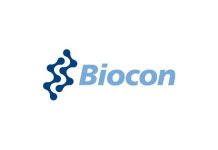Published Originally in Chemical Industry Digest August 2023
Abstract
This article highlights the growing importance of environmentally friendly chemicals in agriculture, addressing issues like water quality, soil fertility, and clogged irrigation systems. Soft and green chemical solutions are presented as key contributors to agricultural sustainability and economic enhancement.
Sensitivity to environmental issues has been increasing by the day. We have been witnessing effects of global warming and increased pollution of air, water and environment. This change in environment significantly affects agriculture. Therefore, the development of effective, safe to humans, and environmentally friendly soft/green chemicals have become imperative and the chemical industry is well aware about it and has been continuously engaged in manufacture of such novel chemistries.
Agrochemicals have played an important role in agriculture and has played a pivotal role in shaping the Indian economy. Many problems faced in agriculture are due to wrong agricultural practices, such as excess fertification, excess use of pesticides which led to the degradation of the soils. There is an urgent need to correct these issues and industry has been working to develop soft and green solutions for overcoming them. These solution cause minimal harm to environment while delivering high benefits to farmer and environment.
Water Quality
In many parts of the world, the water quality has deteriorated and the water sources available for agricultural applications are with high Total Dissolved Solids (TDS). Use of hard water drastically reduces the efficacy of soluble fertilizers, pesticides like herbicides, fungicides, insecticides, biostimulents, etc. It tends to bind up soil nutrients and making it unavailable to plants. The dissolved solids in water do affect these chemicals and the performance degrades. To overcome this, chemical solutions are available. Water treated with these chemicals increases the efficacy of the agri-inputs. Softer chemical solutions are available to break this problem by inhibiting the dissolved solids so that they cannot adversely affect the performance of plant protection chemicals or soluble fertilizers. This prevents excess chemicals into the environment besides saving the cost of the chemicals for the farmer.
Enhancing Soil Quality
Irresponsible use of fertilizers have led to the soil becoming hard; reduce water-holding capacity followed by unavailability of nutrients to the crop led to un-fertility of the farm. Intervention with organic and soft chemicals can reverse the process. Better mobility and availability of nutrients have increase the fertility and nutrient efficiency of the farm leading to a productive harvest.
It is necessary to infuse organic carbon – back in to soil and the simplest way to do it is provide organic compost to the soil. With the compost, soil is able to get beneficial microbes as well as organic carbon. Compost does contain many other nutrients in bio-available form too.
Excess fertigation disturbs soil balance and crop productivity takes a beating. This mistake happens in a quest to get high production of agro produce.
Soft solutions are now available whereby fixed nutrients in soil are made bio-available to the crop and by that, the productivity of land is enhanced. The solution helps in preventing excess fertigation while achieving excess production.
Crop protection chemicals like insecticides, weedicides, fungicides, as well as soluble fertilizers, are delivered by dissolving them in water. The dissolved solids in water do affect these chemicals and their performance degrades. Farmer has to use excess chemicals to get the desired effect and spend on this excess dose. Besides these very chemicals are released in environment to cause pollution.
Soft solutions are able to break this problem by inhibiting the dissolved solids so that they cannot adversely affect the performance of plant protection chemicals or soluble fertilizers.
This prevents excess chemicals in to environment besides saving the cost of the chemicals for farmer.
To optimise water use efficiency in agriculture, majority of the farms have adopted to drip systems, for irrigation. Overtime the dripper gets clogged, this depending on the quality of water used for irrigation and due to it, the delivery of water to the plants reduced and finally the crops set affected. Scale formation followed by emitter plugging will vary with the source of the irrigation water, which will hamper water application uniformly. Scale formation and emitter plugging usually results from precipitation of calcium, magnesium, iron, or manganese minerals. The mineral precipitation to form encrustation (scale) that partially or completely block the flow of water through the emitter and forms scales in the laterals. Few chemicals are having the de-clogging or anti-scaling properties when applied in the drip systems to de-clog the dripper.
Such novel technologies and soft chemical solutions will help in their own ways to improve sustainability of agricultural and industrial processes besides improving the economy.































